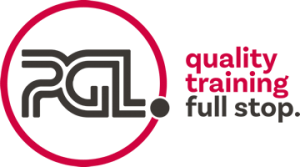Practical demonstration and assessment of Rescue Breaths while Covid transmission remains high (first aid)
The Covid-19 pandemic has brought the world to a standstill. The virus has been declared a global pandemic by the World Health Organization and since then, there has been a lot of uncertainty and panic. The virus is highly contagious and can be transmitted through respiratory droplets. This means that first responders, such as paramedics and firefighters, are at a high risk of exposure to the virus. This is the perfect time to do a first aid course and know exactly what to do if someone is in a time of need
One of the most important first aid interventions is rescue breaths. This is an emergency procedure that is used to provide oxygen to an unresponsive victim who is not breathing. It is a life-saving intervention that can mean the difference between life and death.
As Covid-19 transmission rates remain high in many parts of the world, it is important to remember that first aid measures such as rescue breaths can still be performed safely.
However, due to the high risk of exposure to the virus, first responders are hesitant to perform rescue breaths. This is because they are worried about contracting the virus themselves.
In light of the increase in asymptomatic COVID-19 cases and the increase in transmission of the new variants, the FAQP and HSE support the Resuscitation Council’s position. First aid training in the UK may exclude practical demonstrations of rescue breathing, as a precautionary measure, while Covid transmission rates remain high.
Particularly;
- The learner(s) may demonstrate chest compressions only for adult resuscitation if the Training Provider, Trainer, Learner or Employer is concerned about the removal of a face covering during the demonstration of rescue breaths. Attending annual refresher training will not affect the validity or duration of certification, however.
- Children, infants, and drowning victims are particularly in need of rescue breaths in cardiopulmonary resuscitation. The benefits of teaching rescue breathing to people whose job it is to provide first aid to these groups far outweigh the very small theoretical risk of transmission in the classroom. As such, rescue breaths should continue to be taught as part of paediatric first aid courses, lifeguard training, and other groups such as emergency service workers.
- This is a temporary recommendation that will be reviewed on a regular basis. Once the current peak subsides and the rollout of vaccines continues, we plan to reinstate the practice, performance and evaluation of rescue breaths in the classroom once the prevalence in society subsides. Further news will be made when the review process is completed.
Rescue breaths during training
FAQP has not yet removed the statement on rescue breaths. The widespread vaccination program, better access to medication, and acquired natural immunity, however, have significantly reduced severe illnesses, hospitalizations, and deaths. Additionally, there is no evidence linking COVID transmission to CPR using a resuscitation manikin (of course, proper hygiene procedures must be followed).
Full CPR (with rescue breaths) has been associated with a 76% higher survival rate than compressions only. Thus, Qualsafe strongly recommends that rescue breaths be practised and assessed during first aid training.
While Covid-19 transmission rates remain high, first responders should continue to practice and assess rescue breaths during first aid training. Learning this life-saving first aid skill is more important now than ever before. The skills learned in first aid courses can mean the difference between life and death. This is a vital skill that can save lives.
If you’re looking for health and safety training, then look no further than us! To find out more about our health and safety training courses, or to book a course, contact us today to find out more!
Get your courses booked with us today to keep yourself and your staff safe!
Call – 0121 240 0375 or Email us – info@pglmidlands.com

